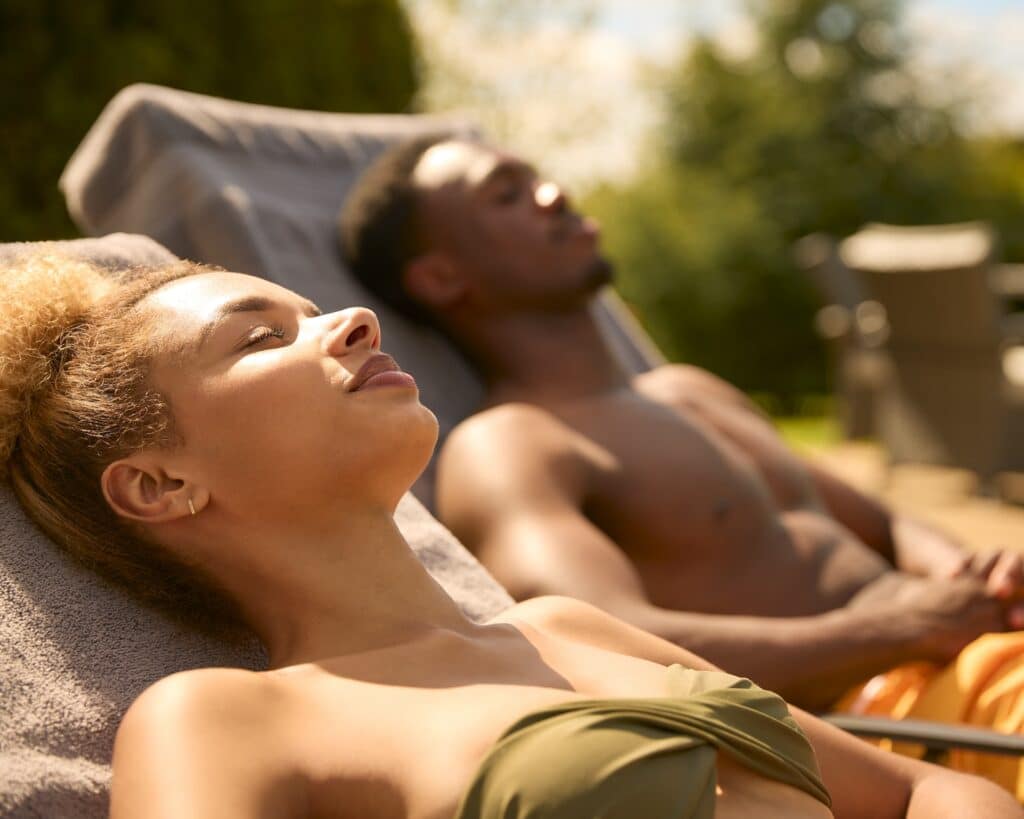Can You Get Addicted to Kava? The Truth About Kava Dependency and Safe Use
The gentle wave of relaxation washes over you after a shell of kava. It’s a feeling many describe as calming, sociable, and stress-relieving. As kava gains popularity outside its traditional South Pacific Islands, a natural question arises: Can you get addicted to kava? This concern is understandable, especially in a world where addiction to various substances is a serious issue. Many people wonder if the serene effects of kava could lead down a similar path as alcohol or other habit-forming substances.
Let’s delve into the facts surrounding kava and addiction. We’ll explore what kava is, its effects on the body and mind, and most importantly, whether it carries the risk of dependency. Our aim is to provide you with a clear understanding of kava’s non addictive potential and guide you on how to enjoy its benefits responsibly.
What is Kava?
Kava, also known as Piper methysticum, is a plant native to the Pacific Island region. Its roots have been used for centuries to create a relaxing beverage, promoting social bonding and relaxation. Kava is a natural herb that has been used for centuries in traditional ceremonies and social gatherings. It’s known for its calming effects, and many people use it to reduce stress and anxiety.
Key Facts About Kava
- Kava Benefits: Reduces stress and anxiety, promotes relaxation, and improves sleep quality.
- Kava Safety: Generally considered safe when used responsibly and in moderation. Research proves that kava does not cause any harm to liver function.
- Kava vs Alcohol: Unlike alcohol, kava is non-addictive and does not lead to dependence
- Kava Tolerance: Minimal tolerance development, making it a sustainable option for long-term use.
What Happens When You Stop Using Kava?
Unlike addictive substances, kava does not typically lead to withdrawal symptoms.
It’s essential to note that kava is non-addictive, and its use is not associated with the same level of dependency as substances like alcohol.
How to Use Kava Responsibly
Using kava responsibly is crucial to maximizing its benefits while minimizing potential risks. Kava is a non-addictive substance, but excessive use can still lead to minor negative effects. In this section, we’ll explore tips for avoiding excessive use and best practices for maximizing kava benefits without dependency.
Tips for Avoiding Excessive Use
- Rotate Kava Varieties: Switch between different kava varieties to avoid developing tolerance and reduce the risk of excessive use. Rotating kava types can help you find the perfect blend for your needs and prevent overuse.
- Take kava-free days: Take regular breaks from kava use to give your body time to recover and reduce the risk of dependency. Taking kava-free days can help you maintain a healthy balance and avoid overuse.
Safety Tips for Using Kava
When using kava, it’s essential to prioritize your safety and well-being. Here are some guidelines to help you enjoy the benefits of kava while minimizing potential risks:
- Consult Your Doctor Before Using Kava: If you’re taking prescription medications, consult with your doctor before using kava. Kava can interact with certain medications, such as benzodiazepines and barbiturates, and enhance their effects.
- Avoid Mixing Kava with Alcohol: Combining kava with alcohol can amplify their individual effects, leading to unpredictable and potentially hazardous outcomes. To ensure your safety, it’s best to enjoy kava and alcohol separately.
- Avoid Driving: Kava can cause drowsiness, euphoria, and relaxation, which can impair your ability to drive safely. Avoid driving or operating heavy machinery after using kava to ensure your safety and the safety of others.
- Be Aware of Reverse Tolerance: Some people may experience reverse tolerance , where the effects of kava increase with repeated use. To avoid unexpected effects, start with small doses and adjust as needed.
- Choose Noble Kava for Safety: Noble kava has been safely consumed for centuries in the South Pacific. Look for lab-tested, high-quality, and fresh Noble kava products to minimize potential risks.
Best Practices for Maximizing Kava Benefits
- Start with low doses: Begin with small amounts and gradually increase as needed to avoid excessive use. Starting with low doses can help you find the perfect amount for your needs and prevent overuse.
- Choose high-quality products: Opt for reputable brands like Fiji Vanua Kava to ensure quality and consistency. Choosing high-quality products can help you get the most out of your kava experience.
- Consult a healthcare professional: If you have any underlying medical conditions or concerns, consult with a healthcare professional before using kava. Consulting a healthcare professional can help you use kava safely and effectively.
Benefits of Responsible Kava Use
- Maximizes kava benefits: Responsible kava use can help you get the most out of your kava experience.
- Minimizes potential risks: Following responsible kava use guidelines can help you avoid negative effects and minimize potential risks.
- Promotes healthy balance: Responsible kava use can help you maintain a healthy balance and avoid overuse.
Common Mistakes to Avoid
- Using kava excessively: Avoid using kava excessively, as this can lead to negative effects and minimize potential benefits.
- Not rotating Kava Varieties: Failing to rotate kava types can lead to developing tolerance and reduce the effectiveness of kava.
- Not following recommended servings: Not following recommended dosages and guidelines can lead to excessive use and minimize potential benefits.
By following these tips and best practices, you can use kava responsibly and maximize its benefits while minimizing potential risks.
Kava vs Alcohol: A Safer Alternative?
When it comes to relaxation and socialization, many people turn to substances like alcohol. However, kava offers a unique alternative that is non-addictive and promotes relaxation without the negative side effects associated with alcohol. In this section, we’ll explore why some people switch from alcohol to kava, compare the effects of both substances on the body and mind, and discuss why kava doesn’t impair judgment or cause hangovers like alcohol.

Why People Switch from Alcohol to Kava
- Reduced risk of addiction: Kava is non-addictive, eliminating the risk of dependence and withdrawal symptoms associated with alcohol. This makes it an attractive option for those who want to enjoy social gatherings without the risk of addiction.
- Improved relaxation: Research shows thatkava promotes relaxation and reduces anxiety without the negative side effects associated with alcohol.
- Enhanced social experience: Kava encourages social bonding and community, promoting a positive and supportive environment. This can lead to stronger relationships and a greater sense of connection with others.
Comparing the Effects of Kava and Alcohol
| Effect | Kava | Alcohol |
| Relaxation | Promotes relaxation and reduces anxiety | Can induce relaxation, but may also lead to increased anxiety |
| Sleep | Can help improve sleep quality | Can disrupt sleep patterns and reduce sleep quality |
| Pain Relief | May have analgesic properties | Can provide temporary pain relief, but may also lead to increased sensitivity |
| Mood | Can improve mood and reduce stress | Can initially improve mood, but may lead to depression and anxiety |
| Cognitive Function | May improve focus and concentration | Can impair cognitive function and judgment |
| Addiction | Generally considered non-addictive | Can be highly addictive |
| Side Effects | Rare, but may include nausea, headaches, or skin reactions | Can cause a range of negative side effects, including hangovers, nausea, and liver damage |
| Interactions | May interact with certain medications, including blood thinners | Can interact with many medications, including sedatives, antidepressants, and painkillers |
| Regulation | Varies by country, but generally not as heavily regulated as alcohol | Heavily regulated in many countries, with laws governing sales, consumption, and driving under the influence |
Why Kava is a Safer Alternative
- No impairment of judgment: Kava does not impair judgment or cognitive function, making it a safer choice for social situations. This means that individuals can enjoy social gatherings without worrying about impaired judgment or decision-making.
- No hangovers: Kava does not cause hangovers or negative side effects associated with alcohol consumption. This can lead to a more enjoyable and relaxing social experience.
- Promotes relaxation without negative effects: Kava promotes relaxation and reduces stress and anxiety without the negative side effects associated with alcohol.
- Reduced risk of addiction: Kava is non-addictive, eliminating the risk of dependence and withdrawal symptoms associated with alcohol.
- Improved relaxation: Kava promotes relaxation and reduces anxiety without the negative side effects associated with alcohol.
- Enhanced social experience: Kava encourages social bonding and community, promoting a positive and supportive environment.
Why Kava doesn’t impair judgment or cause hangovers like alcohol?
Kava and alcohol have distinct effects on the body and mind. Here are the key reasons why kava doesn’t impair judgment or cause hangovers like alcohol:
No Impaired Judgment
- Kava’s Mechanism of Action: Kava acts on the gamma-aminobutyric acid (GABA) neurotransmitter system, promoting relaxation without affecting cognitive function or mental clarity.
- No Cognitive Impairment: Kava doesn’t inhibit communication between brain cells, ensuring that cognitive function and judgment remain intact.
No Hangovers
- No Dehydration: Kava doesn’t dehydrate the body or disrupt electrolyte balance, eliminating the risk of hangovers.
- No Toxic Byproducts: Kava doesn’t produce toxic byproducts like acetaldehyde, which contribute to hangovers.
Common Misconceptions About Kava
- Kava is addictive: Kava is non-addictive and does not lead to dependence or withdrawal symptoms.
- Kava is not effective: Kava is a natural substance that promotes relaxation and reduces anxiety without the negative side effects associated with alcohol.
- Kava is not safe: Kava is a safe and natural substance that can be used to promote relaxation and reduce anxiety.
Final Words: Should You Worry About Kava Addiction?
The answer is a resounding NO. Kava is not physically addictive, and when consumed responsibly, it can be a safe and effective way to promote relaxation and reduce anxiety. Our key takeaways highlight the benefits of kava, including its non-addictive properties, relaxation effects, and social implications. To reap the benefits of kava, moderation is key. We encourage readers to buy high-quality kava from reputable sources, to ensure a safe and enjoyable experience.
Ready to unlock the relaxing power of Kava? Look no further than Fiji Vanua kava, your premier source for premium Kava products. Our range is designed to help you unwind and find calm in today’s fast-paced world.
Our Instant gold is perfect for those on-the-go moments when you need a little relaxation. If you’re looking for a more traditional experience, our Kava Vanuatu is renowned for its potent and balanced flavor. For those seeking a specialized blend, our Kelai Kava is carefully crafted to reduce stress and promote deep relaxation.
For the ultimate Kava experience, try our Premium Old Roots Powder, which offers a rich, complex flavor that’s sure to satisfy even the most discerning palate. Whatever your preference, Fiji Vanua has a Kava product that’s sure to meet your needs and help you find the calm and relaxation you’re looking for.

![Fiji Vanua Kava Bowl 4 [Scene 1] Fiji Vanua Kava Bowl 4 [Scene 1]](https://fijivanuakava.com/wp-content/uploads/2025/05/Fiji-Vanua-Kava-Bowl-4-Scene-1-scaled.jpg)
